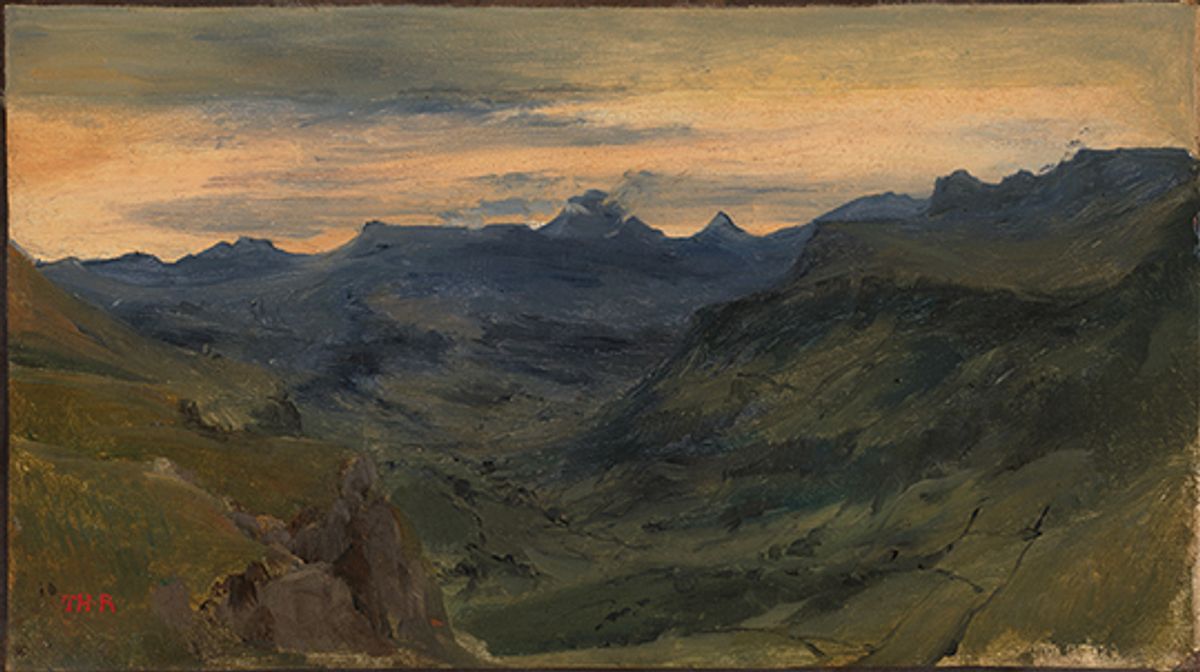A monographic show at the Petit Palais in Paris proposes a radical re-evaluation of the mid-19th-century French landscape painter, Théodore Rousseau. Historians have mostly marginalised Rousseau, a leader of the Barbizon School, as a minor artist overshadowed by the Impressionists a generation later. Théodore Rousseau: the Voice of the Forest aims to restore him to the mainstream as a cultural and social rebel, an environmentalist precursor of today’s eco-warriors and an avant-garde link in the chronology of French art between the classical world of the Musée du Louvre and the Modernism of the Musée d’Orsay.
The show’s co-curator, Servane Dargnies-de Vitry, has brought together around 70 paintings and drawings from museum and private collections in France, Germany, UK and the Netherlands, supported by photographs and documents. They trace Rousseau’s work from early rural wanderings in the 1830s to his tree portraits in the Forest of Fontainebleau after he settled in Barbizon, southeast of Paris, from the 1840s until his death in 1867.
Painted as seen
In Dargnies’s telling, Rousseau emerges as a free spirit, standing against the currents of a deeply reactionary time. Rejecting the Neoclassical codes of academic art, he painted landscapes as he saw them—not grandiose or picturesque or backgrounds for mythological scenes but alive and real. “Rousseau was completely in the pantheist movement, the idea that the divine is in every living thing,” Dargnies says. “It was a new way of looking at the world, seeing man not as superior to nature but part of it. He talks of the soul of trees.”
It was a stance that earned him exclusion from the stuffily academic Paris Salon so often that he turned it into a brand identity, le grand refuse, a marketing meme later appropriated by the Impressionists. Modern scholarship paints Rousseau as a pioneer both of 19th-century conservationism and of art as a commercial enterprise with its networks of patrons, auctions and dealers.
His 1847 Massacre of the Innocents is a quasi-biblical protest against wholesale logging
Campaigning against the industrial revolution’s devastation of old-growth forests—his 1847 Massacre of the Innocents is a quasi-biblical protest against wholesale logging—he militated for the 1853 creation of the world’s first public nature reserve, 624 hectares in the Fontainebleau forest protected for exclusive artistic use, expanded in 1861 to more than 1,000 hectares.
This conservationist note chimes nicely with the summer’s main Paris attraction, the Olympic Games, opening on 26 July and flagged as the eco-friendly “clean green games”, although the show must end before they begin—Dargnies says that the building will be requisitioned, possibly for use as changing rooms.
• Théodore Rousseau: the Voice of the Forest, Petit Palais, Paris, 5 March-7 July


